FOF #2472 – Lola Von Miramar Gets Her Cucu Back
Premium Content
You need to be a Feast of Fun Plus+ member to access this.
Join now
or Log in – it's easy!
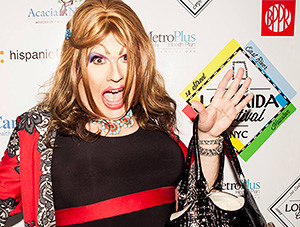
Of all the queens on Cooking with Drag Queens, nobody’s worked her appearance on the web series to get gigs talking about drag, food and culture like Lola Von Miramar, the creation of Dr. Larry La Fountain who teaches queer latinx studies at the University of Michigan at Ann Arbor.
Today, Lola joins us to kiki about Pepsi’s disastrous Kendall Jenner advertisement, teaching a university course on the art of drag in America and all the té on the latinx hijas from RuPaul’s Drag Race Season 9: Valentina, Cynthia Lee Fontaine and Jaymes Mansfield.
Tags: barry manilow, don rickles, kendall jenner, larry lafountain, lola von miramar, pepsi, rupaul's drag race
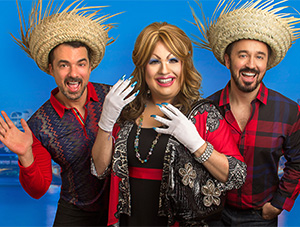 FOF #2182 – In the Kitchen with Lola Von Miramar – 06.22.15
FOF #2182 – In the Kitchen with Lola Von Miramar – 06.22.15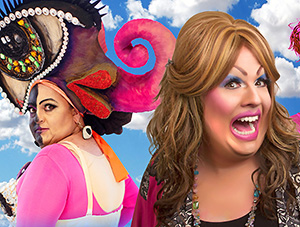 FOF #2956 – Translocas: Puerto Rican Art Gender Warriors
FOF #2956 – Translocas: Puerto Rican Art Gender Warriors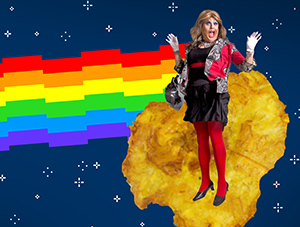 Bonus: How do You Pronounce Latinx?
Bonus: How do You Pronounce Latinx?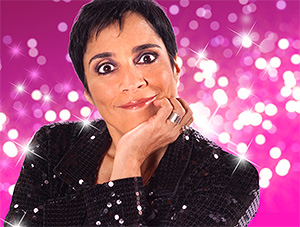 FOF #2493 – Marga Gomez’s Heart Belongs to Daddy – 06.01.17
FOF #2493 – Marga Gomez’s Heart Belongs to Daddy – 06.01.17
Comments
Thanks for having me on the show!
Follow Lola on Twitter at: https://twitter.com/LolaVonMiramar
She’s on Facebook at: https://www.facebook.com/lolavonmiramar/
And on Instagram: https://www.instagram.com/lolavonmiramar/
You are witty, wise and such a beautiful human being. We Adore Larry & Lola!!
¡Gracias Paul! 🙂
This was a great episode. Wish I could take that course too haha.
Thanks!
It would be great if Larry could post the reading list for the course, so those of us who wanted to could follow up on the references.
This ain’t Coursera or Udemy henny… the arrogance of these listeners!..
I dont think that’s a bad idea, IF Larry wants to!
Hi Teacher44!
This is my course description:
Drag is an extremely popular art form in the United States and in many places around the world, as evidenced by the popularity of the television reality competition RuPaul’s Drag Race and of diverse drag cabaret performances and films. Drag, also referred to as cross-dressing and gender illusionism, have been longstanding practices in diverse societies and historical periods. What is the history of drag? Who are its most famous exponents? How has it changed? How is it affected or marked by race, social class, language, gender, sexuality, and geographic location? How have anthropologists, cultural studies scholars, and theater and performance studies scholars written about it? What is the relationship between drag, queer performance, and transgender identity? What is the difference between a drag queen and a drag king? What are the politics of drag? And how does one do drag?
In this class we will approach drag from a variety of perspectives, as informed by American, Afroamerican, and Latina/o studies; women’s and gender studies; queer studies; transgender studies; ethnic studies; performance studies; and theater and film scholarship. We will read pioneering scholars such as Esther Newton, Marjorie Garber, Judith Butler, Judith (Jack) Halberstam, José Esteban Muñoz, Susana Peña, David Román, and Marlon M. Bailey, as well as literary representations by Mayra Santos-Febres. We will learn about drag superstars such as Stormé DeLarverie, Holly Woodlawn, Mario Montez, Lypsinka, Lady Bunny, RuPaul, and Taylor Mac, and discuss theatrical and performance elements (costume, makeup, choreography, lip syncing, humor, audience). We will also discuss landmark documentaries such as The Queen (1968), Paris Is Burning (1990), and Mala Mala (2014), and television and Internet series such as RuPaul’s Drag Race and Cooking with Drag Queens. We will analyze drag as a form of employment and a labor practice, in addition to a form of artistic expression and entertainment. The class will also have experiential components including a drag workshop, a student performance, and a visit to a local drag performance. All students will write essays analyzing the readings, films, and performances that we will study. Final grade will be based on writing assignments, attendance, and class participation (including special activities), and not on your performance skills.
If I was a young freshman in college, I’d kill to be in this class!
Hi Larry-
Thanks so much for your response and for the great work you do. I look forward to chasing down some of these references. And thanks to Fausto and Marc for bringing you to their listeners.
Esther Newton, Mother Camp
Marjorie Garber, Vested Interests
Judith Butler, chapter in Bodies that Matter on Paris Is Burning
Judith (Jack) Halberstam, Female Masculinity
José Esteban Muñoz, chapter on Vaginal Davis from Disidentifications
Susana Peña, Oye Loca
David Román, chapter on archival drag from Performance in America
Marlon M. Bailey, Butch Queen Up in Pumps
Mayra Santos-Febres, Sirena Selena
Documentaries will include The Queen (1968), Paris Is Burning (1990), and Mala Mala (2014), and television and Internet series such as RuPaul’s Drag Race and Cooking with Drag Queens.
Thank you Lola!